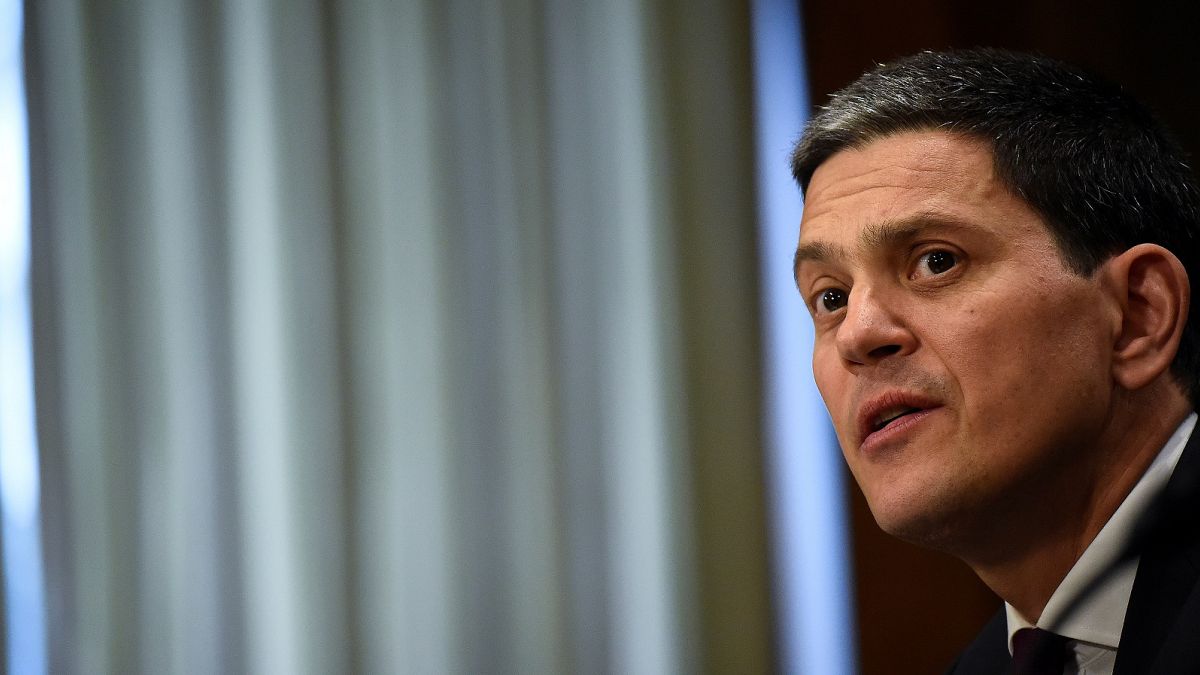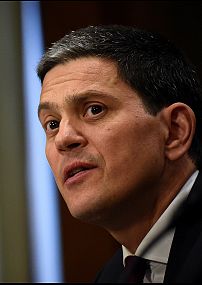As we enter 2020, if the openings for peace are to set Yemen on a path to stability, the EU must be at the forefront of efforts to make the next ten years the decade of delivery, not the decade of disaster. For Yemen, that will require peace.
The cost of the failure to act now and build on the first signs of life in Yemen’s stalled peace process is starkly illustrated by the fact that the country is now home to the largest food insecure population in the world.
Yemen is the most gruesome representation of the colossal cost of today’s ‘Age of Impunity,’ where wars are fought with disregard for civilian life and neglected by diplomats charged with holding perpetrators of international law to account.
The toll of Yemen’s war in innocent civilians has been immense. Today, 80% of the population – 24 million people – are in dire need of humanitarian assistance. 16 million people – half the population – are facing severe food shortages and living on the verges of famine.
That’s why the European Union needs to urgently prioritise efforts to support opportunities for peace and address barriers to humanitarian assistance delivery in Yemen. The International Rescue Committee’s latest report sets off alarm bells: a failure to do secure these objectives could lead to 20 years of rampant child hunger. The analysis also shows that the cost of five more years of war will potentially reach €34 billion in humanitarian spending. That is more than the current entire annual humanitarian budget globally.
These trend predictions make for grim reading. However, there is good news: the huge effort by humanitarian agencies, donor governments, and aid workers has resulted in a reduction in the appalling levels of child malnutrition in Yemen.
The bad news is that by merely maintaining this rate, Yemen will need another two decades to return the country to pre-conflict levels of child malnutrition – already amongst the worst in the world.
The drivers of food insecurity in Yemen are long term, but their connection to the war and the actions of warring parties is beyond question. Worrying, therefore, is the evidence that suggests if conflict were to persist, disrupting port operations or cutting off food supply for a prolonged period of time, famine conditions could return.
Reports from Yemen, and efforts by the UN Special Envoy Martin Griffith, indicate a rare window of opportunity has opened; an opportunity on which to build peace and address the humanitarian crisis. However, success is far from assured.
There are three concrete actions that EU leadership can take to turn this brief opportunity into sustained progress.
Firstly, the External Action Service should make Yemen a top priority for humanitarian diplomacy in 2020. At a time of erratic shifts in US policy towards the Middle East, visible and vocal leadership in support of the international rules-based system from the EU is needed more than ever. The test of European resolve in its defence of multilateralism will be whether it can use the many tools at its disposal to support the efforts of UN Special Envoy, Martin Griffith and encourage warring parties to return to meaningful talks.
Establishing Yemen as a regular agenda item on the Foreign Affairs Council would provide a mechanism for EU and member state accountability to these ends. Meanwhile, a regular review of the 2008 EU Common Position on arms exports and the fulfilment of the eight criteria it sets for exports, including the behaviour of the recipient country with respect to international law, would send a strong signal of EU commitment to protection of civilians in conflict. 2018 may have been the deadliest year of Yemen’s war - but with robust diplomatic efforts, 2019 can be the last.
Secondly, the EU should continue to play a leadership role in both the funding of the humanitarian response in Yemen and, through its relationships with warring parties and their supporters, apply pressure to address impediments to humanitarian programming. The EU Commission has been a significant donor to the crisis providing partners - including the International Rescue Committee - with essential financing to bring lifesaving assistance to Yemenis. Now, against a backdrop of late and reduced funding from key donors, including those from the Gulf, the EU must maintain levels of support to Yemen and be ready to fill gaps should they increase as some expect.
In Yemen, the lifesaving work of humanitarian actors has been continually undermined by the deliberate actions of warring parties. Today, a byzantine set of conditions placed on humanitarian partners mean 3 million Yemenis are considered “hard to reach.”
However, the reality is that many of those in need are not hard to reach; they are made hard to reach. It is therefore essential that the EU’s newly appointed EU Foreign Policy chief, Josep Borrell and Crisis Management Commissioner, Janez Lenarčič, work together to build on EU engagement with both the internationally-recognised government and Houthi authorities to help remove impediments to humanitarian programmes across Yemen. Donor pressure has proved successful in supporting improved access with lifesaving implications. The momentum must be maintained.
Finally, the EU should prioritise efforts to address the horrendous toll of Yemen’s war on women and girls. Commissioner Lenarčič has already called on the European Parliament to increase the EU’s humanitarian budget by 30% in 2020. It is vital that within its allocation to Yemen, the EU ensures funding is available to deliver programmes designed to address the specific impact of the conflict on women and girls.
Yemen is at a crossroads. The crisis has made it the face of modern poverty, where people caught up in the war are at risk being even more excluded from progress in 2030 than they are today. As we enter 2020, if the openings for peace are to set Yemen on a path to stability, the EU must be at the forefront of efforts to make the next ten years the decade of delivery, not the decade of disaster. For Yemen, that will require peace.
David Miliband is President and CEO of the International Rescue Committee.
____________
Are you a recognised expert in your field? At Euronews, we believe all views matter. Contact us at view@euronews.com to send pitches or submissions and be part of the conversation.

